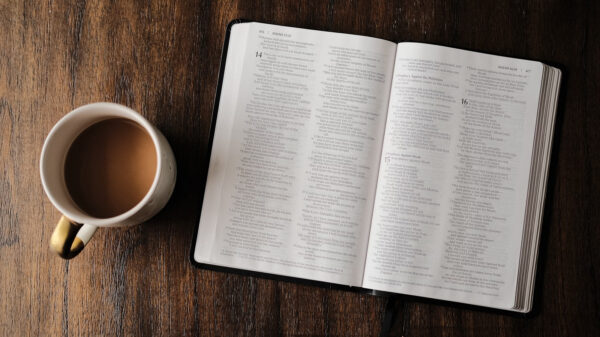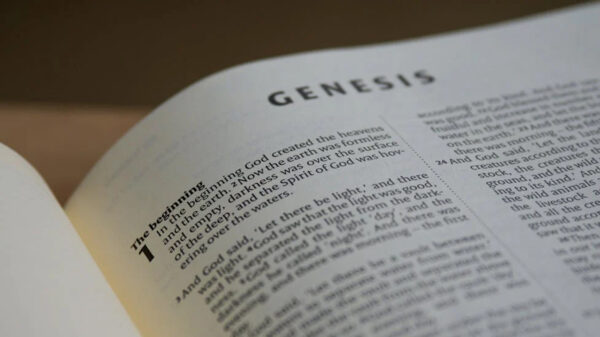
I had the great pleasure of visiting with Dan Wallace at an event where we got the chance to examine a number of very ancient manuscript fragments. Some of these were Biblical fragments; some of these were non-Biblical ancient documents. We were the first people to examine the documents in nearly two thousand years. By the end of the day it was clear to me that there are literally thousands of fragments of ancient texts still out there to be discovered and examined. We have only touched the tip of the iceberg and as our ability to find and examine these fragments continues to improve, we’ll surely discover much more evidence that the New Testament was written very early and transmitted faithfully.
In fact, this is the focus of my book, Cold Case Christianity. I’ve been studying this issue from the perspective of a detective for some time now and I’ve written about the evidence for early dating and about the reliable transmission of the documents at ColdCaseChristianity.com. If the New Testament eyewitness accounts were written as early as the evidence infers, many of the objections of skeptics are impotent. Early manuscripts mean that the original witnesses to the life of Jesus were (1) available to write the documents we now have, and (2) early observers of Jesus’ life would have been available to deny the testimony of the gospel authors. The continuing discovery of early fragments of New Testament documents corroborates this early dating.
When visiting with Dan Wallace, Greg Koukl and I asked him about the skepticism on the part of people like Bart Ehrman related to early dating. We asked Wallace if there was some specific manuscript evidence that inclined people to deny the early dating of the Gospel accounts. Wallace said there was no such evidence. We then asked why people continued to deny the early dating if, in fact, we were continuing to find early fragments and there was no contrary manuscript evidence. It turns out that the late dating of the gospels is due primarily to a denial of supernaturalism.
One of the primary reasons why skeptics date the gospels later than 70AD is the fact that Jesus predicted the destruction of the Temple in the gospel accounts (i.e. Matthew 23). Secular history records that the Temple was destroyed in 70AD, fulfilling this alleged prediction by Jesus. In order to avoid the accurate prophesy from Jesus, skeptics argue that the gospel must have been written after the temple was destroyed. After all, how could Jesus possess the supernatural power of prophecy if nothing supernatural exists? The philosophical naturalism of the secular historian prevents him from accepting the possibility of accurate prophecy.
The gospels also contain many descriptions of miracles. The philosophical naturalist must also deny the truthfulness of these supernatural accounts. Skeptics, therefore, date the gospel accounts very late, arguing that eyewitnesses to these events were already dead and unavailable to deny the claims. It turns out that the presupposition of philosophical naturalism is at work in the minds of those who would deny the early dating of the gospels. When this presuppositional bias is removed, the remaining evidence confirms that the gospels were written in the lifetimes of the eyewitnesses.

J. Warner Wallace is a Dateline featured Cold-Case Detective, Senior Fellow at the Colson Center for Christian Worldview, Adj. Professor of Christian Apologetics at Talbot School of Theology, Biola University, author of Cold-Case Christianity, God’s Crime Scene, and Forensic Faith, and creator of the Case Makers Academy for kids.
Subscribe to J. Warner’s Daily Email
Save
Save
Save
Save
Save
J. Warner Wallace is a Dateline featured cold-case homicide detective, popular national speaker and best-selling author. He continues to consult on cold-case investigations while serving as a Senior Fellow at the Colson Center for Christian Worldview. He is also an Adj. Professor of Christian Apologetics at Talbot School of Theology, Biola University, and a faculty member at Summit Ministries. He holds a BA in Design (from CSULB), an MA in Architecture (from UCLA), and an MA in Theological Studies (from Gateway Seminary).





































Pingback: Simple Thought That helps Your small business Expand | internet article marketing, read articles online for free, blogging articles
Pingback: Did Jesus Work Miracles as a Child?. | Rivers of Hope
Pingback: Unbelievable? Four Simple Principles to Determine Ancient Historical Reliability - Cross Examined - Christian Apologetics | Frank Turek
Pingback: Unbelievable? Four Simple Principles to Determine Ancient Historical Reliability | Cold Case Christianity
Pingback: Do the Non-Canonical Gospels Challenge the Historicity of the New Testament? | Apologetics ForumApologetics Forum
Pingback: There’s No Good Reason to Deny the Early Dating of the Gospels | Cold Case Christianity | Christian Reasons
Pingback: Why Shouldn’t We Trust the Other Non-Canonical Texts Attributed to the Gospel Authors? | Apologetics ForumApologetics Forum
Pingback: Testing the Gospels From John to Hippolytus | Cold Case Christianity
Pingback: Testing the Gospels From John to Hippolytus | Christian Apologetics
Pingback: Testing the Gospels From John to Hippolytus
Pingback: Is the Bible True? The Cumulative Case for the Reliability of the Gospels (Free Bible Insert) | Cold Case Christianity
Pingback: Do the Non-Canonical Gospels Challenge the Historicity of the New Testament? | Cold Case Christianity
Pingback: The Unsurprising Depth and Variety of Ancient Stories Written About Jesus | Cold Case Christianity
Pingback: Why Shouldn’t We Trust the Other Non-Canonical Texts Attributed to the Gospel Authors? | Cold Case Christianity
Pingback: How to Respond to Claims that Jesus is a “Copycat Savior” | Anchor Apologetics – Engaging the Church and Culture with Answers from a Christian Worldview
Pingback: 15 Years Later, We Remember – Cyber Penance
Pingback: Rapid Response: “The Gospels Are Unreliable” | Apologetics.com
Pingback: Rapid Response: “The Gospels Are Unreliable” | TLG Christian News
Pingback: mid-week apologetics booster (2-9-2017) – 1 Peter 4:12-16
Pingback: Who is Jesus? – Quickly Reminded
Pingback: Why do Conservative Christians Allege that the Majority of Scholars Reject the Eyewitness Authorship and Early Dating of the Gospels Due to a Bias Against the Supernatural? – Escaping Christian Fundamentalism
Pingback: mid-week apologetics booster (11-21-2019) – 1 Peter 4:12-16
Pingback: Sí, la cosmovisión cristiana es apoyada por la evidencia